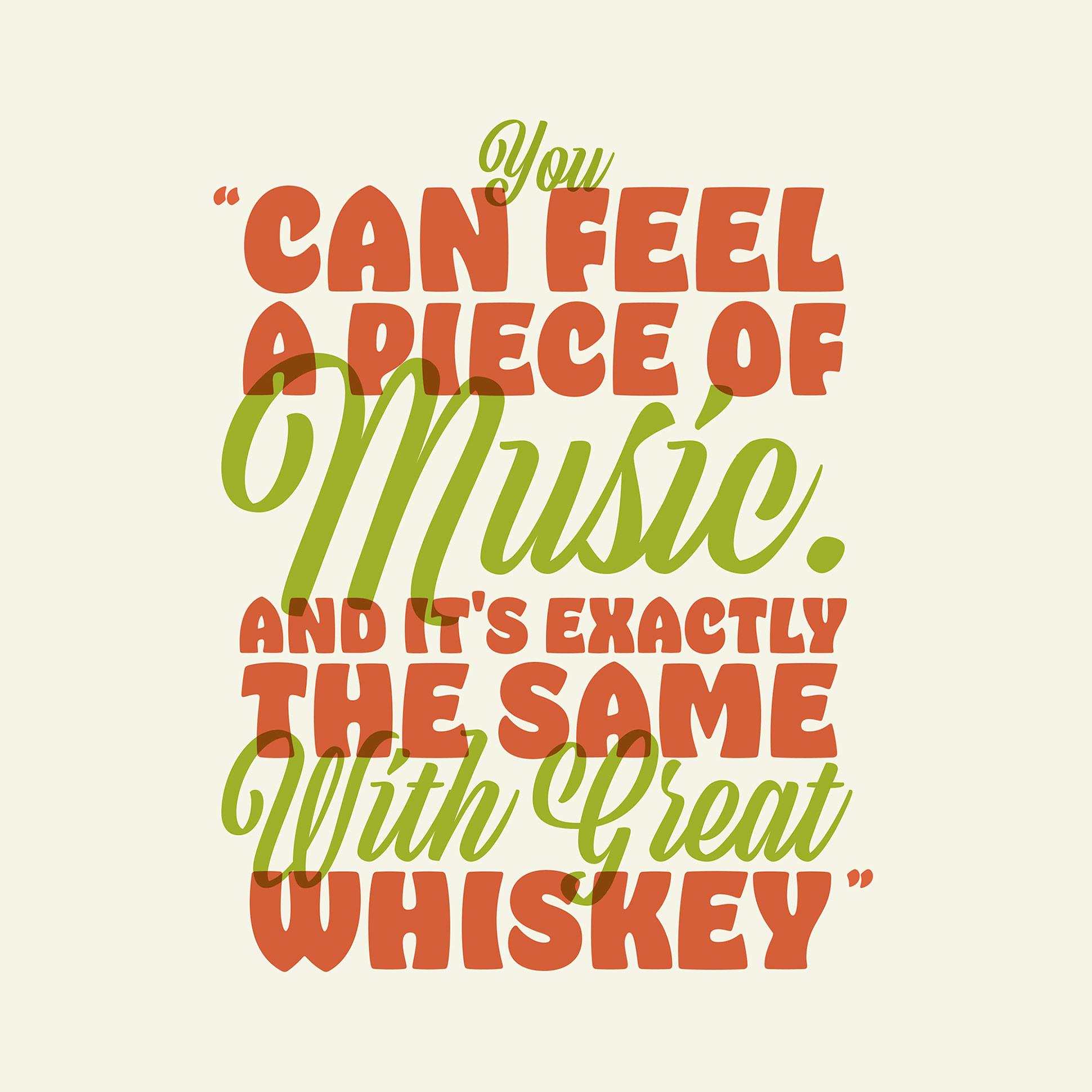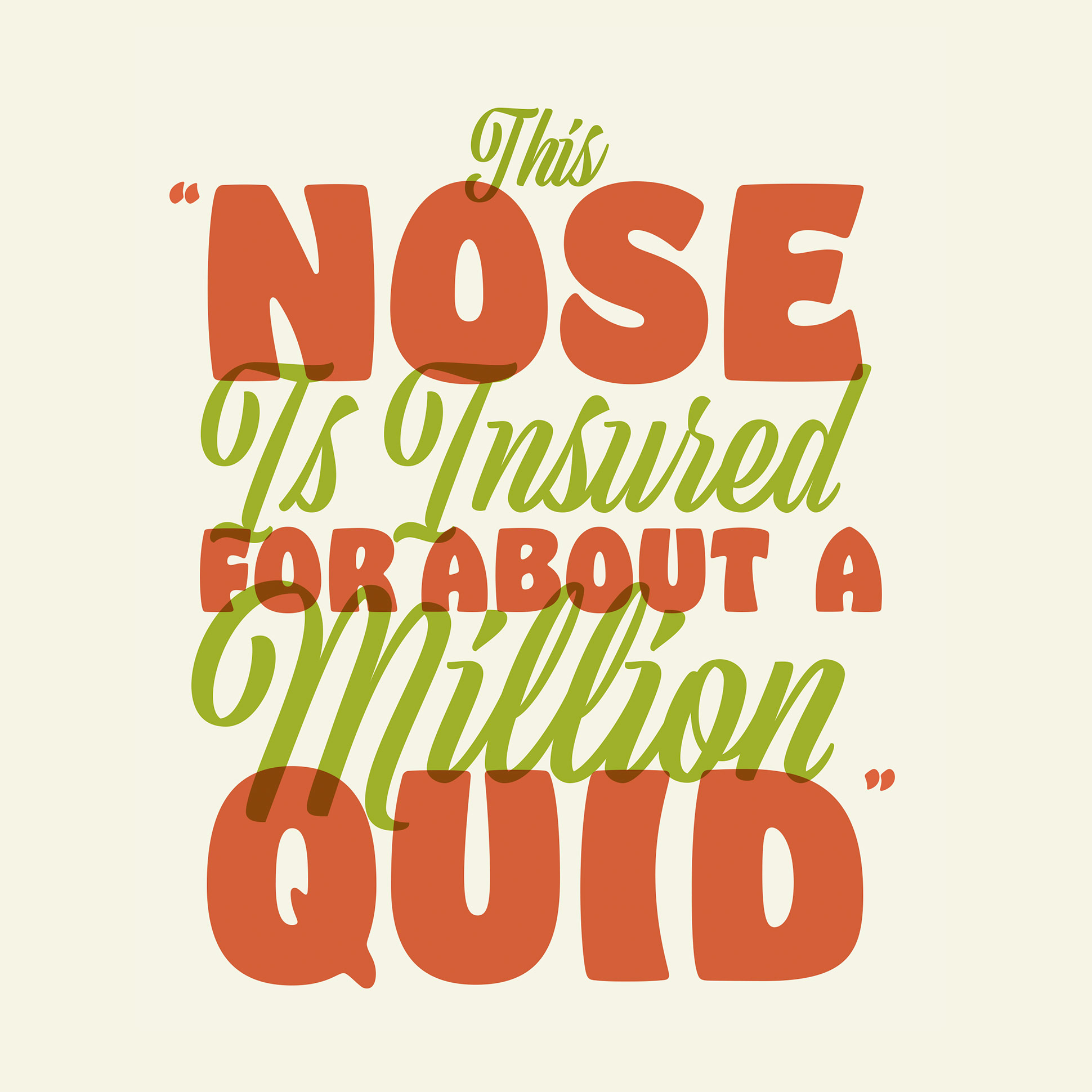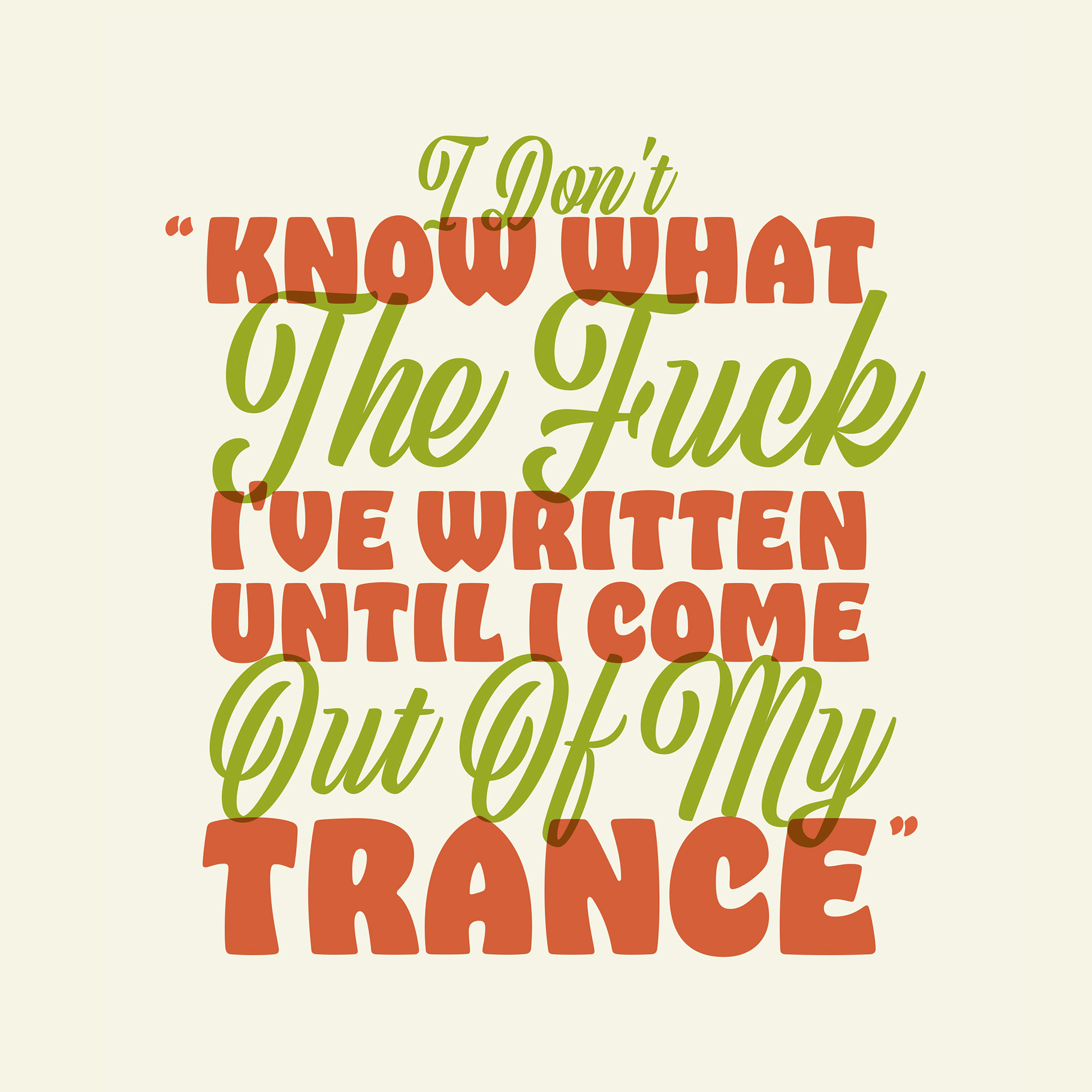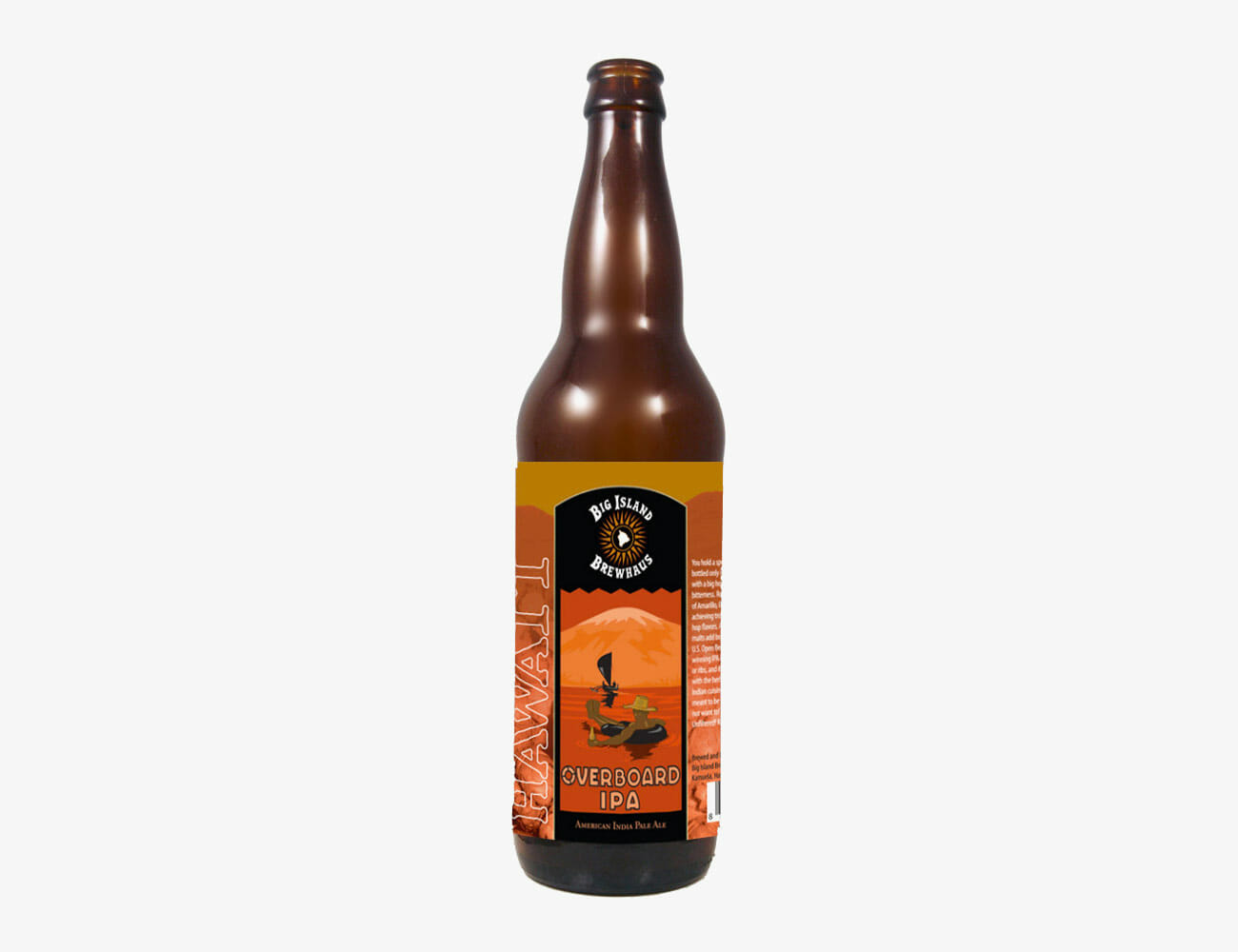A version of this article originally appeared in Gear Patrol Magazine with the headline “The Monk of Malt.” Subscribe today
Jim Murray wants to talk to me about the Bible. We’re sitting in a small conference room in a hotel in Longview, Texas, where Murray will soon be spreading the gospel. He’s dressed in a white jacket and a fedora, with a ruddy face and a Cockney accent so thick it nearly drips onto the table. His contentment seems palpable. But when I bring up the question of who publishes his Good Book — that is, his divisively popular Jim Murray’s Whiskey Bible — his white whiskers twitch.
“I’ll show you a picture of a publisher I know,” says Murray. “Give me a moment.” As he scrolls through his phone, searching for the picture, I think, What the hell do I care what his publisher looks like?
Murray turns his phone and shows me a picture of a vulture.
Which is to say: Jim Murray is a goofball (and, for the record, an amateur ornithologist), and he is very sure he will only ever self-publish his intricate and shockingly comprehensive Bible, which he’s done annually since 2003. In the process, Murray has become one of the world’s most influential whiskey critics, and his Whiskey Bible has become one of the longest-running whiskey-review collections in the world. It contains three main sections: a short but extremely methodical guide to whiskey tasting using his rigorous and proprietary “Murray Method,” which includes a period abstaining from sex; some 350 pages of scores and extensive notes on over 4,500 Scotches, bourbons, ryes, Irish whiskeys and others; and a short list of that year’s top scorers, topped by a single, definitive best whiskey dubbed “World Whisky of the Year.”

When Murray Named a $30 bottle of Crown Royal Northern Harvest Rye the best whiskey of 2017, pundits argued but the whiskey sold out everywhere.
Murray’s decisions regarding those winners can rock the whiskey world and cause bedlam at liquor stores. After Murray named a $30 bottle of Crown Royal Northern Harvest Rye the best whiskey of 2017, reviewers and fans worldwide argued viciously over the decision—but the whiskey sold out everywhere, and even caused, according to Murray, “a fight over the last bottle in one Canadian store.” The police, Murray says with relish, had to be called in to restore order.
On the surface, selecting a sole winner across all whiskey categories in a given year—not to mention the feat of tasting almost 1,500 new whiskies, which he slogs through in his basement “whiskey lab” in the English countryside—can seem like hubris, or grandstanding. But watching Murray in action suggests otherwise. At the bourbon tasting in Longview, I watch as he holds a roomful of thirsty Texans in check, forbidding them from swallowing a single drop of the sweet stuff, or even talking, for over an hour. Instead they sip, spit and take notes while “listening to the whiskey.” The Texans start out frustrated. Then they turn awestruck.
Murray has immense industry expertise, a convincing personal brand and an established soap box from which to shout his commandments. Search him online and you’ll find a battle raging among whiskey nerds: Murray is either a powerhouse taster or a self-serving hack. To his credit, Murray handles it all with his oddball sense of humor and an insistence that drinkers try his method before deciding for themselves. His gospel is simply a reflection of its author: former journalist, master taster, raconteur and, above all, whiskey fanatic.
Q: You self-publish your book. Why?
A: I don’t like publishers. The Jim Murray name is protected. It is trademarked. The “Whisky Bible” is trademarked. And I’ve learned from experience that having other people publish your books is extremely painful.
I can control what goes into the book, and what doesn’t go into the book. By owning the publishing company, [I can make sure] that people don’t renege on what they’re going to say and put in advertising, which then compromises me. It makes me look as though I’m someone’s stooge. So it’s a question of control.
Q: Where are you at right now in terms of getting the new Whisky Bible ready?
A: I’m frighteningly behind schedule. I was doing some shows in India, and I didn’t actually leave the hotel I was staying at, didn’t take any chances catching anything, right? I took certain foods with me from England, everything was prepacked. And then two days after I got back I was really, really ill. I had a virus and I couldn’t work for a month. So basically, I have been doing twenty-five whiskeys a day, every single day. It is really hard work.

Q: What’s a good day like when you get through and taste all twenty-five?
A: I try to do them in batches of five. Then I rest my palate for a while, go back to taste another five. If I’m going to eat, then I will probably select a whiskey that I know has at least a fifty percent chance of having some sulfur on it. It may be a whiskey that’s been matured in a sherry cask. I will usually have one of those before I eat, because that gives me a chance for my palate to be restored. And that means I can get through the sulfur ones.
Q: What does it taste like, sulfurous whiskey?
A: It’s filthy, horrible, disgusting, mouth-numbing, vile. I mean, it’s utterly vile. There’s no particular words that can describe it. Even those words aren’t as accurate as you want them to be because it’s just a unique disgustingness.
Q: Do you taste the whiskeys blind?
A: No, I’ve got to know who they are. I will look at the distillery and say, “Okay, it’s Glenn-whatever, twelve years old.” Well, I know what kind of scope they’ve got for twelve years. I know what the first- and third-fill bourbon tastes like, and then what sherry first and third sherry tastes like. What it’s like when you blend them around, what they’re going for. You can’t judge what the blender’s trying to do if you’re doing it blind.

Buffalo Trace’s 2018 release of William LaRue Weller is Jim Murray’s reigning whiskey of the year. Naturally, (and maybe not entirely because of Murray), it’s impossible to find.
Q: Tell me a little bit about the craft of whiskey tasting.
A: When you’re tasting for the Whiskey Bible, you know full well that if you write a really bad review, that whiskey may not sell. It could certainly impact it. Just imagine how some bloke who’s mortgaged his house to the hilt, and his wife’s not happy about that, but he says, “I gotta do this,” and she supports him. And then I give that whiskey 3.5 seconds of my life, and I’m in a bad mood, and I say, “Well, this is very average.” What’s gonna happen to that distillery, that person, that marriage?
If my throat isn’t working right, I don’t taste. The responsibility that comes with what I do is quite scary. So I treat every whiskey the same. I’ll give it the same amount of time, and the same amount of respect.
If my taste buds aren’t right, I won’t work. Which is another reason my love life is shit. Because if you catch a cold off a girl—[from] the moment you get a sore throat [to] the moment you get rid of your cold is, on average, seventeen days. You’re then behind schedule for half a month. Basically, I’m the most antisocial bastard for most of my life.
Q: The way you describe your tasting and your tasting setup, it’s laboratory-like. You’re talking about controls. That’s all very scientific. Is whiskey tasting a science or an art?
A: I don’t think it’s a science, because I’m about the most unscientific person you can possibly find. Do you know soccer?
Q: Sure, a little.
A: What’s your favorite team?
Q: The New York Red Bulls.
A: Let’s say you go over and you train for six months with the first team at the Red Bulls. Would you get on the first team?
Q: No.
A: Because you don’t have inherent skill. You haven’t got the thing that cannot be trained. If I train with a [whiskey] blender, all I can do is teach him or her how to actually understand the whiskey: to get their palate sharpened, how to translate the whiskey, how to spot problems. You can only do that to a degree. If they haven’t got the empirical skill, where they actually feel the whiskey, you can only teach them so much.

Q: Who do you craft the Whisky Bible for? What are your guiding principles?
A: I stay away from other whiskey writers because I don’t think they’ve got the same perception I have. My natural instinct is to write for the public. The whole point of the Whisky Bible is not for the industry; it’s so people don’t buy a shitty whiskey.
I want to promote and make the guys who make good whiskey feel good, because I think they deserve a pat on the back. But I have no qualms about kicking a distillery that makes bad whiskey—and they might make good whiskey, but produce a bad whiskey—I have no problem whatsoever with kicking them in the nuts.
When you’re writing, you’ve learned as a genuine journalist, you write for the public. And the Bible is writing for the public. I can’t say that other people that write about whiskey are [necessarily] doing that. So I keep my distance. I do my own thing. And if it means I don’t get on with people, I don’t care.
Q: You still sound like a journalist.
A: I’m just interested in doing the best I can to make the Bible as complete and honest as it can possibly be.
At least for the Bible, if I criticize someone, they’ve been criticized in a way that they’ve gotten the fairest crack of the whip. And equally, if they’ve been praised, it’s not because I just love that brand. I spend a lot of time looking for the faults. You look for the faults of a whiskey before you look for anything else. If you don’t find the faults, you move onto the next stage, and the points start piling up.
And I’ll be honest with you, when I’m writing I don’t know what the fuck I’ve written until I come out of my trance. I’m in a daze. So by the time I get to bed, I’m mentally dead, because of the concentration that’s gone into it.
Q: What do you think of the state of the whiskey-review world right now?
A: To be honest, I don’t try to look at it too often, because I don’t want, subliminally, to have a view of a whiskey until I’ve tasted it, if that makes sense. But I don’t get, for instance—you know these competitions where you go off and get an award, gold, silver, you know? You get a bunch of people to taste sixty whiskies in one morning. I don’t get it. How can you judge sixty?
You’ve only got to get one of them that’s got a bit of sulfur on it, and then your taste buds are fucked. I mean, it takes me half an hour minimum to get the bloody sulfur [off] my palate.
I read tasting notes from other people, just out of interest. Where have they tasted it? Have they tasted it in their kitchen? Have they just eaten a spicy meal? When people buy the Whiskey Bible, I can tell them: The food that I’m going to have eaten beforehand will be the most boring food they’ve ever seen in their lives. A cheese roll is about as exciting as it gets for me when I’m writing.

I don’t smoke. The area in which the whiskey is tasted is a controlled area. If there are any aromas coming in, I stop. I don’t wear aftershave. Everything is totally controlled. It’s never tasted at the distillery, so you don’t get that extra romance.
Q: Have you ever regretted a decision you’ve made in the Whisky Bible? In picking a winner, or how you reviewed a whiskey?
A: No, I’ve never regretted it, because I think every single one has been done honestly, and I would stand by it. And every single one I’ve ever tasted, I’ve never gone back to it and thought, Oh, God, I’ve got that completely wrong. No, I’ve never regretted anything.
I’ve sometimes cursed that I’ve given an award to someone who I don’t like. You know, the point is you can’t punish the child because of the parent. So it doesn’t matter whether you like the owner or not. It’s the whiskey you’re judging, not them.
Q: How the hell do you pull off choosing a single best whiskey of the year?
A: I can’t tell you how hard that is. Actually, sometimes, the whiskey is so damn good that it just leaps out and you think, Okay, this is the winner, but I’m going to have to try against everything else, because it may be me who is wrong. And then you try against all the others, but [it] just absolutely walks it.
And then there’s other years where it really is a battle to find that winner. And you think, Well, which one is giving me a hard-on? And you know that one is doing it. It is something inside you. It’s like a whiskey song. And you can feel it.
Q: Do you feel like you know the winning formula for making whiskey? The winners that you pick are so broad: Japanese whisky, Canadian rye, Texas whiskey. Is there something that connects all of them, the fabric of a good, consistent whiskey maker?
A: I think there is. I’m a consultant blender as well, and you can tell a whiskey that has been properly blended. And the blender in me, I think, can feel it. You actually feel the whiskey.
So if I tried to create whiskey as a blender, I actually just close my eyes and think about the whiskies that they’ve got. And I literally just contemplate it and picture it in my mind and I feel it. And whether you get these great whiskies from Japan, I can feel it. I’m thinking, Christ, I can feel what the blender was doing with it. I can see what they are doing. Then you actually feel the whiskey.
That may sound complete and utter bullshit. But it’s true. It’s like a piece of music. You know, you get a piece of music, and it absolutely just goes into every pore of your body and goes through your spine and through your brain. And it’s exactly the same with the great whiskey — you feel it. That’s how I can tell whether it’s great whiskey.
Q: The Murray Method reminds me in some ways of meditation, in that it tries to remove every outside influence possible and make you really focus on the liquid.
A: I can always look up the day that John Lennon was shot, because I’d actually spent that night with a woman who was a hypnotist. And I actually said to her, “Is sex better when you’re hypnotized?” And she said, “Well, let’s find out.” So, she hypnotized me. And Christ, it was. The Murray Method is kind of a bit like that.
Q: You’ll have to explain that.
A: Because it brings everything out more vividly, doesn’t it? You know, instead of it just being a whiskey sitting in the glass, suddenly, it’s a lot more. And this is the same when you’re having sex when you’re hypnotized. It suddenly becomes a lot more.
Q: One of the most distinctive things about you and your brand of tasting is that you tell everyone exactly how you do it, and how militant you are about it.
A: Absolutely. You know, every whiskey is tasted with the Murray Method. Every single one. I will never taste the whiskey within the distillery. I wouldn’t do it. It’ll always be somewhere neutral.
And to be honest, I haven’t got time to worry about how other people do it. All I know is that it takes my entire life to do what I do. I haven’t got time for other things, and I just concentrate on doing what I do, absolutely right.




